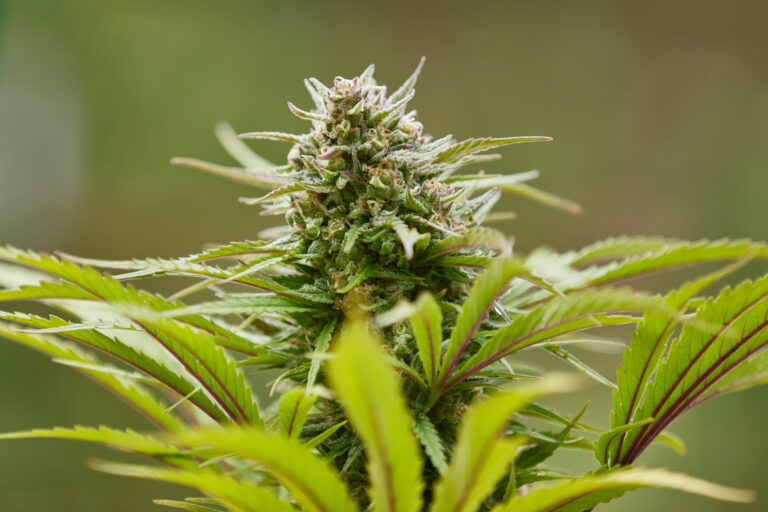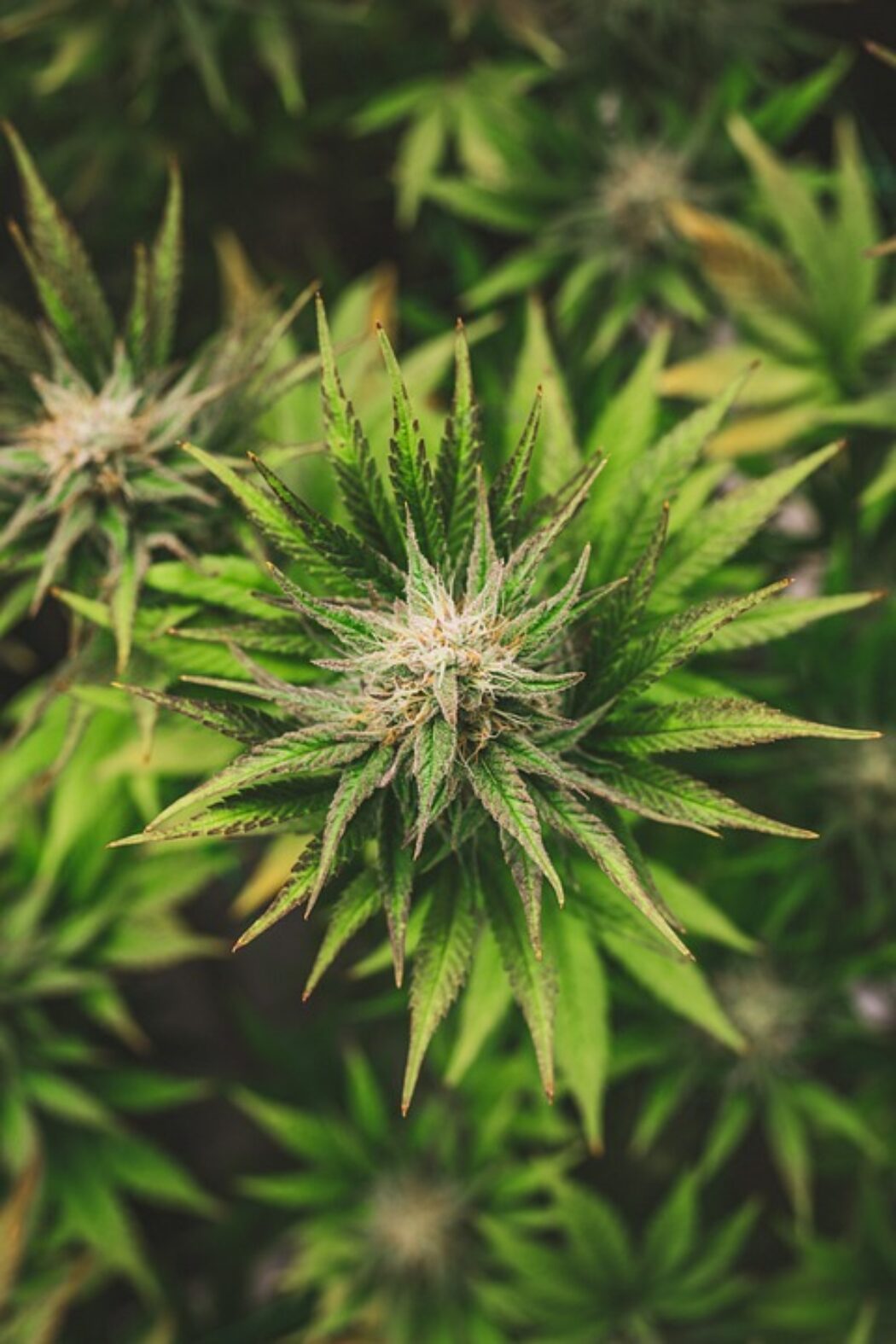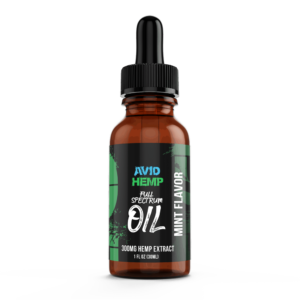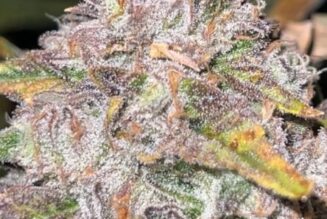Cannabis culture has been a storied part of human history for thousands of years, shaping diverse and unique cultural experiences for people around the world, including the Muslim world. A little over ten years after Colorado and Washington led the charge in legalization for recreational use, and the plant has become more intertwined into the zeitgeist, demand for the representation of authentic cannabis culture has surged. With this growth in attention to cannabis culture, more stories have been uncovered, including the history of cannabis in Islam.
A naturally growing plant with landrace strains indigenous to regions all over the world, cannabis resulted in many diverse communities that developed their own unique practices for thousands of years. Cannabis was relatively unknown to many Muslim scholars as the influences of Islam began to spread across the MENA (Middle East and North Africa) region, leaving little scholarly commentary on its permissibility within the religion. This begs the question, is weed haram?
What does haram mean?
I wrote a blog back in 2021 asking this same question; I did not take a definitive stance at the time, but the question did continue to pique my curiosity. This curiosity and blog, later published in print, brought Malaysian Royal, Tengku Chanela Jamidah Ibrahim, and me together to create a brand called Halal Hemp. Our mission is to educate, destigmatize, and share cannabis culture with the Muslim community while also representing the Muslim voice in the cannabis industry.
Through our journey, we conducted extensive research, with the help of Shaykh Mustafa Umar of the Islamic Center of Irvine, to develop an understanding of Islamic theology and scholarship as it relates to cannabis and, more importantly, cannabis medicine.

Photo by: Gina Coleman/Weedmaps
Image lightbox

Haram means ‘forbidden’ in Arabic, and most acts are categorized as either halal (permissible) or haram. For example, alcohol and pork are explicitly defined as ‘haram’ in the Quran, the Islamic holy book. Cannabis does not have such an explicit prohibition. However, as Hashish and Bhang gained popularity, many Muslim scholars found themselves compelled to pass judgment. As its use became more widespread in Muslim communities, most notably Sufis, who used it for worship as they believed it brought them closer to Allah (God), scholars began declaring it forbidden.
The Muslim community and views on cannabis
Islamic law draws from various sources depending on one’s perspective and school of thought, but it fundamentally revolves around two main pillars: the Quran, considered the direct word of God, and the Sunnah, the practices of Prophet Mohammad (PBUH). Additionally, Hadith, which comprises reports of the Prophet’s actions, serves as a widely consulted source for interpreting Islamic practices. Many scholars rely on specific Hadith to justify prohibition, citing the maxim “every intoxicant is khamr and every khamr is forbidden.”
Here, “khamr” encompasses substances like wine, already deemed haram, leading to the blanket prohibition of all intoxicants.
The above maxim opens up the debate on the differences between THC and CBD. THC is the known psychoactive compound in cannabis that induces the “high” people feel. CBD, which has no psychoactive effects and is approved by the FDA, has been generally accepted as halal. However, most research has shown that CBD is most effective when combined with THC, which complicates people’s views on cannabis medicine.
Islamic law and cannabis
Shaykh Mustafa Umar researched the history and science of cannabis medicine on behalf of the Fiqh Council of North America, an organization that verifies religious claims through Fatwas or religious decrees, to help them take a definitive stance on cannabis. Through his research, they codified their decision in a Fatwa in 2018, determining that cannabis is halal under the right medical circumstances.

Photo by: Gina Coleman/Weedmaps
Image lightbox

They reason that under Islamic law, there are exceptions even for actions that are defined as haram; for example, if you are dying of hunger and the only food available is derived from pork, it is not forbidden to eat it to survive — similar logic applies to cannabis.
The Fatwa references two schools, the Ḥanafī and Shafi’ī schools of Islamic Law, both of which have varying interpretations of Islamic law, agree on this one principle; “that it is permissible to use unlawful substances, such as pig byproducts, for medicinal purposes, when there is no alternative available, and it is known that the cure lies in the medication.” Meaning that cannabis is acceptable for Muslims to consume for medical purposes when it is a known, effective medicine for you.
Modern history of cannabis usage in the Muslim world
Though this Fatwa passed in 2018, the history of cannabis use in Islam goes much deeper; with evidence of Hashish used in regions synonymous with the Muslim world, such as Morocco, Turkey, and Iran, for over a millennia. Beyond this, you can observe parallels from ancient traditions to modern-day legalization movements: that cannabis is medicine.
The Kitab Tib, an ancient text of traditional Malaysian pharmacopeia, makes reference to “Indian Hemp” aka Cannabis, as an effective medicine for the same ailments cannabis was said to treat at the inception of the modern legalization movement. California passed the world’s first medical cannabis legislation, Proposition 215, also known as the Compassionate Use Act, in 1996 around the same premises that the Fatwa later cites: that cannabis has the potential to relieve insomnia, nausea, and increase the appetites for people undergoing life-saving treatments for cancer or HIV/AIDS, among relief for a variety of other health issues.
Recreational vs medical use
In today’s context of health and wellness, cannabis has been understood more as a viable treatment for stress, anxiety, and other mental health issues. This begs an interesting question: how do these rules of Islamic law and interpretation apply in a modern context with ailments we’re still learning about?
We are currently in a golden age of mental health research and understanding, with wide access to SSRIs and other antidepressants as the primary treatment. Many people who have been prescribed these pharmaceuticals found that they cause more harm than good and view cannabis as their safest, most effective alternative. Under Islamic law, the use of cannabis would be halal in this case.

Photo by: Gina Coleman/Weedmaps
Image lightbox

Another core element of Islamic interpretation is intent. The intent for legalization has become murky in the modern movement of adult-use policies that legalize cannabis outside of a medicinal framework. The same 2018 Fatwa references recreational use as a problematic aspect of the legalization movement; for example, people saying they are using cannabis medicinally but actually just want to get high or people who invest in cannabis businesses solely for the sake of making a profit.
With these guidelines in mind, the core question for any Muslim who is involved in cannabis is: what is their true intention for consuming this plant or working in this industry? If someone is coming into the cannabis space purely for the pursuit of money, most advocates of the legalization movement will look at you with skepticism in the same way Islamic scholars would forbid participation in the industry, illustrating the common ground between both groups.

Photo by: Gina Coleman/Weedmaps
Image lightbox

But anyone who has been involved in this movement since before legalization began in the last few decades, sees this movement beyond the business aspect, despite the frameworks being passed across the country. Even under this “recreational use” framework, the OGs of this movement who have been fighting for this plant are fighting for social justice, remediating the harms of the war on drugs, and expanding the availability of cannabis medicine and research.
Bottom line
The harms of the war on drugs are well documented; we know what prohibition has done to countless BIPOC communities across the country and the world, including Muslims. When considering the net harm versus the net good of the plant, the good substantially outweighs the harms. For that reason, as I have encountered Muslims in my many years working in this industry, they have all found the good in the work they do and aligned it with the values they’ve learned from Islam. Cannabis and Islam are not inherently incompatible, but it all starts with respect and proper intent for the plant, yourself, and your community.
Peace, blessings, and Ramadan Kareem.
FAQ
Is THC Haram or Halal?
THC is considered halal if it is used for medicinal purposes.
Is CBD Haram or Halal?
Since CBD is non-intoxicating, is it generally accepted as halal.
The information and research used for writing this piece was generously shared by Shaykh Mustafa Umar of the Islamic Center of Irvine with Ishaq Ali and Jamidah Ibrahim of Halal Hemp as they were building their business and learning more about how to align our mission with Islamic values. Our goal is to share this information with both Muslims and non-Muslims alike, to share culture, and to educate people more about the plant. Please visit our website www.halalhemp.com, to support the movement.
The post Is weed haram? appeared first on Weedmaps.











